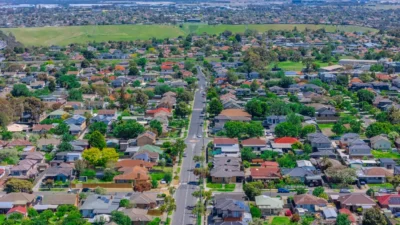Australian property’s boomerang effect: Swinging back stronger
In a dynamic display of market resilience, Aussie property tackles interest rate swings with strong predictions of value increases and robust economic growth

Australia’s housing market in 2024 paints a complex picture of modest growth, significant global achievements, and ongoing economic challenges. This multifaceted scenario emerges from a combination of rising mortgage costs, supply constraints, and the resilience of the property sector, as reported by key industry sources.
Valuation and market resilience
According to The Property Tribune, Australia’s residential real estate now boasts a valuation of AUD10.3 trillion, a marked increase from the AUD10.2 trillion recorded at the end of 2023. This growth indicates a continued recovery and resilience of the housing market. Notably, the national home values rose by 1.5 percent in the three months leading up to December, albeit slightly down from the rise recorded in the June quarter. The rent values across the country also witnessed an increase of 0.6 percent, taking the annual increase to 8.3 percent.
International recognition
Adding to the sector’s achievements, Australian real estate received significant recognition at the 18th PropertyGuru Asia Property Awards Grand Final 2023 where Australian developers and properties won in several categories, namely Best Lifestyle Developer (Asia) for Salvo, Best Boutique Condo Development (Asia) for Kurraba Residences by Third.i Group, Best Luxury Housing / Landed Development (Asia) for Capri by Monaco Property Group, Best Waterfront Residence (Asia) for Amorel by Capital Luxury Residences, and Best Condo Architectural Design (Asia) for R.Iconic by R.Corporation. These awards underscore the industry’s excellence in architectural and developmental qualities on a global platform.
Economists’ forecast and interest rate dynamics
On the other hand, Broker News reported on a survey by The Australian Financial Review, which involved 30 economists that predicted a median house price rise of 2.5 percent in 2024. This cautious optimism stands in contrast to the property industry’s expectation of a four percent rise. Despite the Reserve Bank’s cash rate hikes reaching 4.35 percent since 2022, the property market has shown remarkable resilience, with home values surging over eight percent nationwide in the previous year.
CoreLogic’s survey titled ‘Decoding 2024: Real Estate’s Trends and Goals Revealed’ involved insights from more than 1,400 real estate professionals. A significant 71 percent of these professionals expect interest rates to have the most substantial influence on the housing market in 2024. They foresee fluctuations in interest rates as the primary driver, with nearly 59 percent strongly believing that rising rates will have the most significant impact, while 12 percent anticipate falling rates to also influence the market.
Economic sentiment and consumer behaviour
Despite the anticipated interest rate changes, the majority of the respondents in CoreLogic’s survey expressed positive sentiment toward the overall economy in 2024. About 57 percent expect some economic growth, and a similar number anticipate home values to rise this year. However, concerns are raised over low housing stock, high interest rates, and inflation. These factors are identified as significant stressors for agencies, with potential impacts on consumer behaviour and market dynamics.
Regional variances and rental market trends
The Property Tribune also highlights regional variances in the housing market. For instance, Perth recorded a significant 13.4 percent increase in rent values, while Melbourne saw an 11.1 percent increase. Contrasting trends were observed in Hobart and Canberra, where diminishing values were noted. These regional differences point to the diverse dynamics at play within the Australian housing market.
Supply concerns and dwelling approvals
Another facet of the market is the state of dwelling approvals. While there has been an increase of 1.6 percent in dwelling approvals, overall numbers have remained low compared to the decade average. This reflects ongoing challenges in meeting the ambitious housing accord targets set by the industry.
Now as 2024 progresses, Australia’s housing market, marked by a blend of modest growth predictions, global accolades, and regional variances, remains a pivotal area of interest in the national economy. The interplay of economic forces, policy decisions, and market responses will continue to shape the future of real estate in the country.
Know any award-worthy residential, commercial, or industrial projects in the country? Nominate them for the 7th annual PropertyGuru Asia Property Awards (Australia) on or before 2 August 2024. To know more, visit AsiaPropertyAwards.com/Award/Australia/.
Gynen Kyra Toriano, Digital Content Manager at PropertyGuru, wrote this article. For more information, email: [email protected].
Recommended
Inside Asia’s luxury resort residences that are redefining high-end living
Asia’s resort residence market is witnessing a shift as investors eye larger, multifunctional units
How joining BRICS could give Thailand and Malaysia a new economic edge
Thailand and Malaysia are eyeing membership in the bloc of emerging nations
How Modi’s real estate reforms are transforming India’s housing market – and what’s next
A coalition led by the strongman prime minister Narendra Modi is looking to consolidate gains in the property market
Why Japan’s new interest rates might spark a transformation in Niseko’s property market
A new era for Niseko’s wintry property market dawns with the sunset of Japan’s negative rates regime








